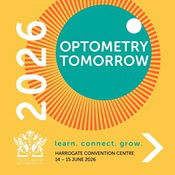Professional Matters Optometry & Dispensing
FODO statement on planned eye care reforms in Wales
FODO statement on planned eye care reforms in Wales
FODO and its members welcome news that the Welsh Government has committed to investing more in NHS primary eye care services to help meet growing needs.
Our members provide most NHS primary eye care in Wales and strongly support the Welsh Government’s goal to address chronic underfunding of the NHS sight test (GOS Level 1) and to ensure this essential clinical service is funded in a sustainable way in the future.
Plans to increase the range and funding of enhanced clinical services (Levels 3-5 GOS) in Wales also recognises that primary eye care has the expertise and infrastructure to help meet more need closer to home. Implemented well, this will reduce pressure on busy hospital eye departments and most importantly prevent avoidable sight loss due to delays in care.
FODO has long advocated for greater investment in primary eye care and better eye care for all, and therefore strongly supports these goals.
Although much of the detail remains to be worked through, the Optometry Wales (OW) seminar of 26 September made clear there is strong support for planned reforms from Royal College of Ophthalmologists Wales Committee, Welsh Optometric Committee and patient representatives. OW which has led negotiations will shortly confirm details of what providers will be expected to deliver within the new funding structures through clinical manuals, at which point it will be possible to map out the impact of planned reforms on patients, practitioners and practices.
At this stage, FODO welcomes confirmation at the OW seminar that NHS Wales will not limit the number of practices that can provide the new Level 4 and 5 GOS, and news that Wales will remove the notification period for domiciliary eye care (Level 1 GOS) which is an unnecessary barrier to care in the current system.
There is clearly a great deal we welcome in these planned reforms, including the additional investment in upskilling, but FODO members have outstanding points on which we will seek clarification in coming weeks and months. These include
- The impacts of cutting patient benefits to part fund planned reforms, limiting choice and potentially increasing costs for some patients (including families with children and adults on means tested benefits) at a time of high inflation and a cost-of-living crisis
Sustainability of essential domiciliary eye care services (Level 1 GOS) given the new funding structure and proposals to make Leve 2 GOS mandatory
Clarity on what will be included within the clinical manuals so that members can better understand the full scope and sustainability of the service requirements.
Read the views expressed by the AOP HERE























